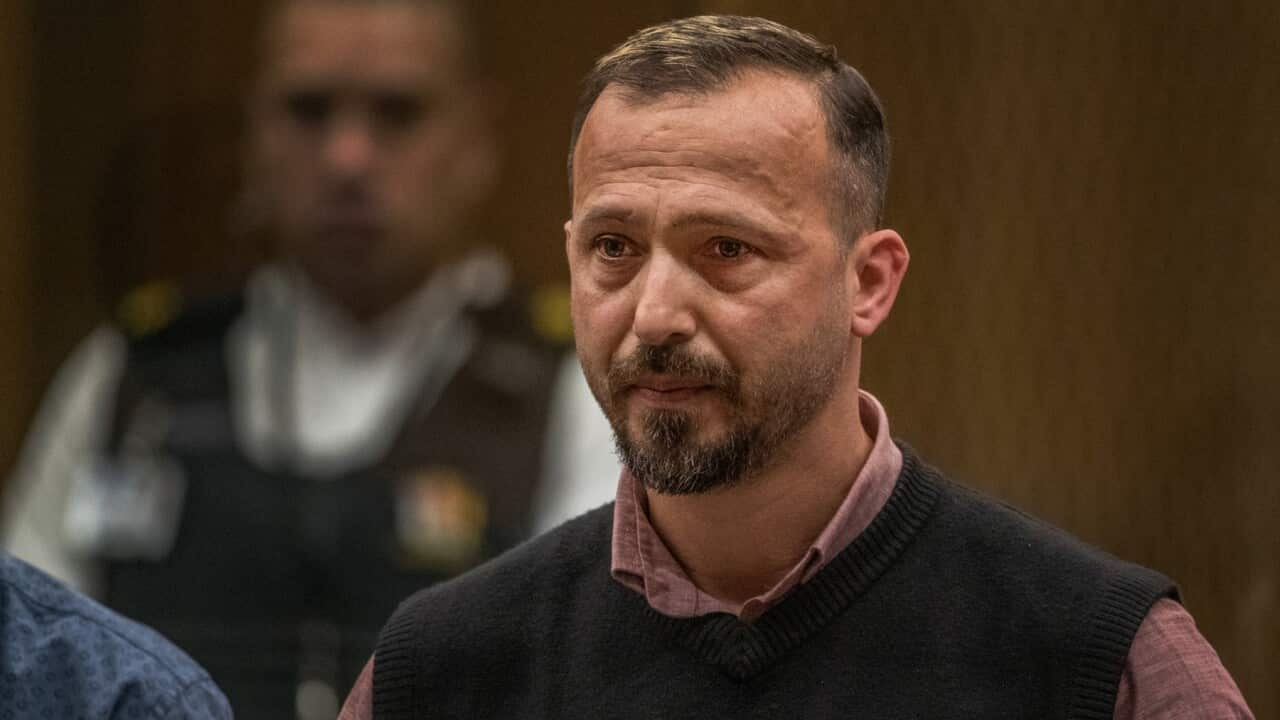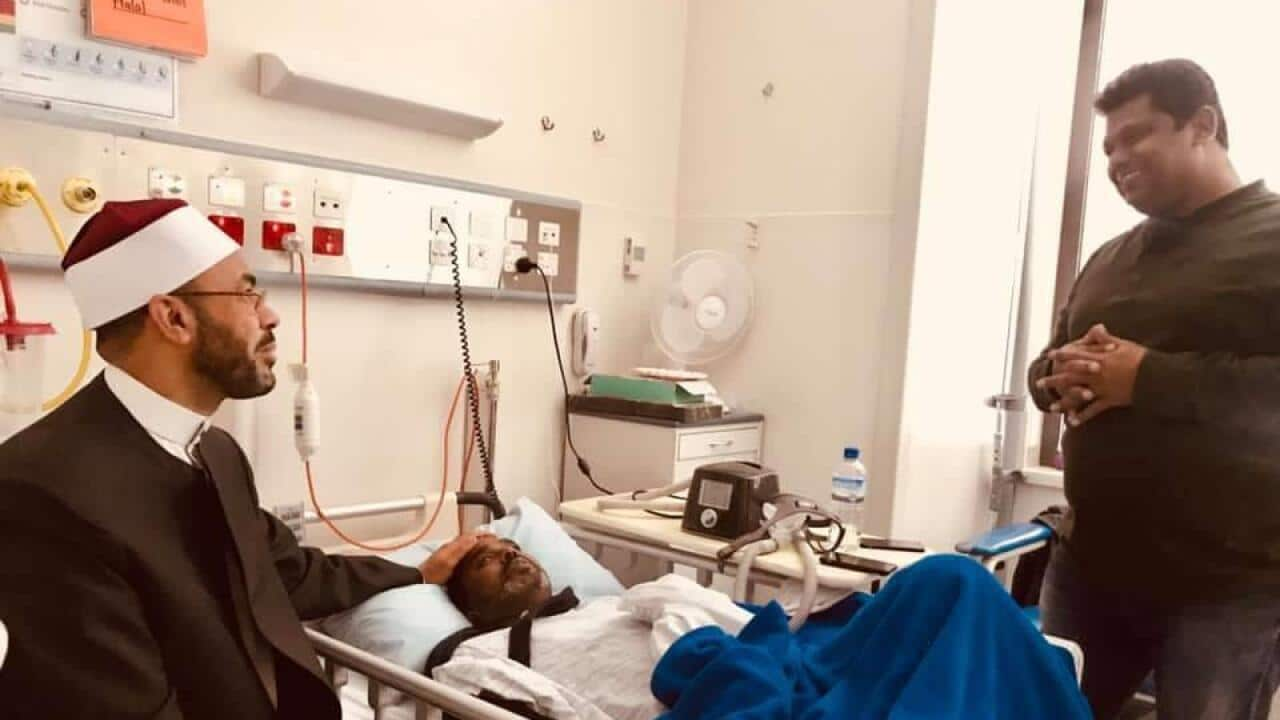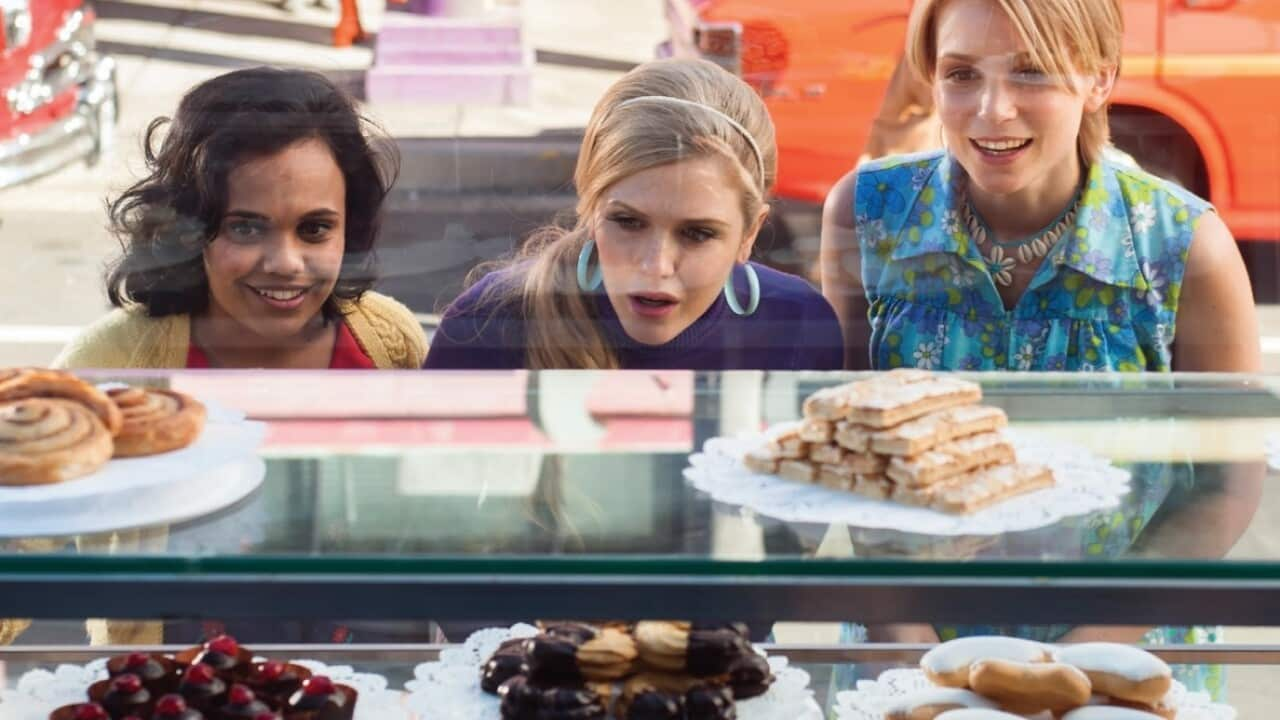Temel and his partner, a New Zealander, decided to move to New Zealand from Turkey in 2009 because they felt their children would have a better future in New Zealand and they were looking forward to a peaceful life.
But ten years after they migrated to the Land of the Long White Cloud, their peaceful life was shattered when Temel came to face to face with Australian Brenton Terrant who killed 51 people in Christchurch’s Al Noor mosque on 15 March 2019.
"The gunman and I looked into each other’s eyes. I knew it was my turn,” Temel told SBS Turkish after he read his victim impact statement in the court earlier this week.
He was shot nine times. The first bullet hit his face, breaking his teeth and jaw.
The next four bullets hit his legs in several places. When the gunman left to get another loaded weapon, Temel buried his head under the bodies around him. When the attacker returned and began shooting again, Temel was hit by another four bullets - all on his left arm.
When the attacker returned and began shooting again, Temel was hit by another four bullets - all on his left arm.

A Muslim worshipper prays at a makeshift memorial at the Al Noor Mosque in Christchurch, New Zealand, 2019. Source: AAP
"I saw people's souls leave their bodies around me," says Temel, as he laid motionless between the two rounds of shooting.
He says he was very lucky that he survived.
"There was an invisible shield around me."
“After nine bullets, my life is a miracle,” he says.
Temel spent a month in the hospital and has had six surgeries in the last 17 months, including one the day after he read his victim impact statement on August 24.
The gunman and I looked into each other’s eyes. I saw in that moment that I was a target of his gun. I was shot nine times by the gunman. I will have permanent disability and pain as a result of these injuries. However, I am a stubborn, strong, Turkish man.
Temel says his and his family members' lives changed after the attack.
He is in constant pain because of his injuries. He says he hasn’t been able to work or concentrate on anything.
“I can’t do things that I used to do in the past. It’s a constant reminder of my disability when I brush my teeth, try to run, walk or lift something. I take pain killers, anti-depressants.”
The kebab business he started with his business partner ten months earlier has been suffering since the shooting. They invested their life savings of $300,000 in the business and it was doing fine until that day, he says.
But it's not the same anymore.
“I have been a grumpy, angry, disabled man with quickly swinging moods."

Victims and relatives wait to enter the Christchurch High Court for the final day in the sentencing hearing for the Australian gunman. Source: AAP
'Kia kaha'
Temel says he is thankful for the support he has received since the shooting.
“When I opened my eyes in the hospital, there was psychologist next to my bed”.
In the beginning, he saw the psychologist twice a week and then once a week, after some time. He went to the Hajj, a pilgrimage to Mecca for Muslims, as a guest of the Saudi royal family and Turkey where he was born, as part of his rehabilitation. His kids also had support.
The trauma will live with me forever. The images, smell and sound of the mosque haunt me. I do not see a future where I will be without pain. However I am determined to find a positive way to overcome the pain, cope with distance from my family and live with my disabilities. In the future I will think about and be proud of all I have overcome as I walk freely in the sunshine. Kia kaha.
Before he read his victim impact statement in the court, he increased his sessions with the psychologist to prepare himself to recount his ordeal.
But he is optimistic about the future.
“I have another chance to live the rest of my life,” he says.
He doesn’t know if his kebab business will survive but before his scheduled seventh surgery he is going to Turkey with his brother who came to New Zealand to support him to read his victim impact statement.
“I have many wonderful friends around me, including my business partner who's suffered a lot as well. I try not to feel alone. I will fly to Turkey again soon to be surrounded by my family and friends. It helps a lot.”
“I have kids to take care of. I can’t give up. The event made me determined to find a way to stay strong. That’s why I chose Kia kaha (Stay strong) as my motto.”
For people in Australia, mental health support is available at . supports people from culturally and linguistically diverse backgrounds.





